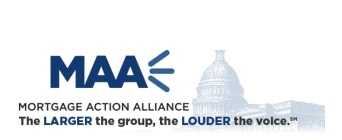By a comfortable 74-23 vote yesterday, the Senate approved Brian Montgomery as Assistant Secretary for Housing and FHA Commissioner, ending a nine-month process that saw his nomination repeatedly held up by Senate rules and a backlog of other Trump Administration nominations. Twenty-five Democrats joined 49 Republicans in approving Montgomery.
The Mortgage Bankers Association and other industry trade groups had pushed hard for Montgomery’s approval. Following yesterday’s vote, MBA President and CEO David H. Stevens, CMB, issued a statement, praising the Senate vote and pledging to work with Montgomery on key housing issues.
“MBA commends the Senate for confirming Brian Montgomery to lead the Federal Housing Administration,” Stevens said. “His experience, knowledge and ability will ensure his success in this position. MBA fully supports FHA’s efforts to assist low and moderate income Americans and first-time homebuyers. We look forward to working with Brian Montgomery and the FHA team, and continuing to work with Secretary Ben Carson, to ensure they succeed in their mission.”
This will be Montgomery’s second stint as FHA Commissioner, having previously served from 2005 to 2009, under both the George W. Bush and Obama Administrations. During that period, MBA and other industry trade groups said in a March letter to Senate leadership, “he realized the immense counter-cyclical benefits that FHA can provide in the middle of the housing crisis. He also led HUD’s response to Hurricane Katrina and chaired the Hurricane Recovery and Response Center at HUD headquarters.”
The Trump Administration initially nominated Montgomery in September 2017. The Senate Banking favorably reported his nomination in late November by an 18-5 bipartisan vote; however, under Senate rules and procedures, and given that the full Senate did not hold a floor vote on his confirmation before year’s end, his nomination was “returned” at the end of 2017. He was nominated again in early January; the Banking Committee once more favorably reported his nomination later that month.
“Brian brings a wealth of housing knowledge and experience to HUD having held this position in two previous administrations, and we are excited to welcome him back to the Agency,” said HUD Secretary Ben Carson in a statement. “FHA’s work is critical to HUD’s mission of advancing sustainable homeownership opportunities and quality affordable housing for all Americans. Brian understands this better than anyone and will be ready on day one to address the challenges of today’s housing market.”
“I’m honored to have the opportunity to serve with Secretary Carson and the team at HUD to further equal access to affordable rental housing and homeownership opportunities and seek solutions to restore vitality to the housing market,” Montgomery said in a statement.
Ahead of yesterday’s Senate vote, the MBA Mortgage Action Alliance issued a Call to Action, urging its members to contact their senators in support Montgomery’s nomination (https://action.mba.org/mba/app/write-a-letter?0&engagementId=478493).
“FHA is the largest insurer of mortgages in the world and is a critically important source of affordable mortgage credit, especially for first-time and low- and moderate-income homebuyers,” said MBA Senior Vice President for Legislative and Political Affairs Bill Killmer. “Competent leadership is needed for such an important agency and Brian’s years of experience, most notably his previous term as FHA Commissioner under both the George W. Bush and Obama administrations, make him an excellent candidate for this position.”
Once on board, Montgomery will have his hands full. MBA has identified several critical management priorities, including enhancing efficiency and technology deployment, clarifying existing lender guidance and ensuring the long-term financial stability of the FHA program.
Source: Mortgage Link
May 24, 2018
Mike Sorohan msorohan@mba.org



